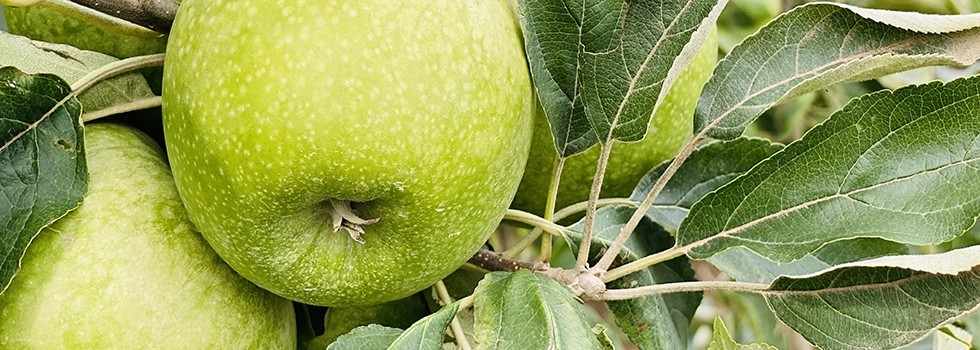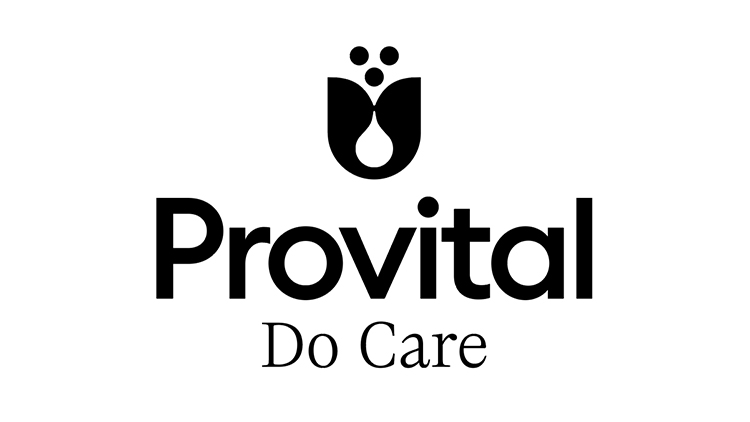Promotional Features
Upcycling apple waste to create an effective and sustainable well-aging ingredient
Circular beauty is becoming key to success in skincare. With consumers calling for personal care and beauty brands to do more to protect the environment, and actively switching to products that align with their values, there are opportunities to grow sales by adopting ingredients that are healthier for people and the planet. Recognizing that, Provital has developed Pomarage, a natural, apple-upcycled cosmetic active ingredient.
Consumers are looking to brands for leadership on the environment. Almost 80% of British adults questioned in a 2019 survey said personal care and beauty brands should put more effort into manufacturing their products in an ethical and sustainable way.1 Similarly, a 2020 survey of adults in the UK found 39% of people think brands are most responsible for reducing the environmental impact of beauty and grooming products, far exceeding the proportions of respondents who expect consumers or government to act.2
Brands that step up and provide the leadership consumers want are being rewarded with rising sales, as is evidence by the fact 54% of consumers bought eco-friendly beauty and personal care products in the year prior to being polled by Mintel.3
Among the almost 2,000 consumers who had switched beauty products in the prior three months, one in seven people made the change for environmental reasons, reflecting the fact that more adults prioritize ethical and sustainability credentials than sensory characteristics when buying personal care products.
Ingredients are a key area of consumer focus on the ethical and sustainability credentials of personal care and beauty products. The Mintel survey found 52% of people prioritize eco-friendly ingredients, putting them second only to packaging, at 59%, on the list of areas consumers assess when considering whether a product aligns with their values.4
Manufacturers are responding to the demands. In the 12 months up to September 2020, launches with ethical and recycling-related messages tripled, according to Mintel data, driven by high, rising levels of activity in the European Union and the US and the emergence of the opportunity in less mature markets.
Even after the growth, there remain significant opportunities for products that align with consumer demands and the United Nations’ Sustainable Development Goals (SDGs). Upcycled ingredients offer brands a way to seize the opportunity. By creating value from waste materials, upcycled ingredients meet three SDGs about inclusive and sustainable economic growth, responsible consumption and production, and climate action.5
Collaborating to close the loop
Cross-industry collaborations are needed to deliver upcycled ingredients. Agricultural activities that support the food and beverage industry generate waste that can serve as the raw material for beauty ingredients that meet consumer demands for natural cosmetic products.
Recognizing that, Provital began working with Mooma, a family-run, artisan supplier of cider based close to its headquarters in Spain. The process of turning apples into cider results in a waste product known as pomace, a mix of apple flesh, skin and seeds that is rich in polyphenols.6 With the world producing several million metric tons of apple pomace a year, upcycling of the byproduct represents a major opportunity.7 Yet, as it stands, most pomace is thrown away as a waste product.
Provital’s Pomarage shows how apple pomace can be put to better use. The ingredient contains standardized quantities of polyphenols, enabling personal care and beauty brands to use waste from a fruit widely associated with wellbeing in products that support healthy skin.
As Provital sources pomace locally, Pomarage has a very short, fully traceable and low-carbon supply chain, characteristics that are increasingly important to consumers. Pomarage also cuts waste and enables Mooma to derive value from a waste product. As such, the ingredient meets SDG goals that relate to sustainable economic growth, responsible production and climate action.
Validating the effects of Pomarage
Survey data suggests the environmental credentials of Pomarage will be attractive to many people. However, an ingredient cannot succeed on green characteristics alone. The survey of UK consumers that found ethical and sustainability credentials are now more important than sensory characteristics also showed that functional benefits take precedence over almost all other product attributes. While 34% of people prioritize green credentials, 54% of consumers focus on functional benefits.
The upshot is well-aging ingredients must be good for the planet and the people who use them to succeed. Pomarage’s roots in polyphenol-rich apple pomace show its potential to deliver functional benefits, but Provital wanted to deliver data to validate the effects of its upcycled ingredient.
To gather the data, Provital ran two in vitro efficacy studies. In the first study, Provital’s researchers assessed changes in gene expression in normal human dermal fibroblasts (NHDFs) that were treated with a 0.125% dose of the active ingredient for 24 hours. Compared to untreated control NHDFs, the expression of the gene that encodes for production of type I collagen increased by 382% (vs 100% increase of the untreated control). Provital also saw increases in enzymes involved in the formation and bonding of collagen fibres.
The in vitro study supports the hypothesis that Pomarage can contribute to restoring the healthy appearance of the skin by reducing inflammatory processes and markers associated with cellular senescence, as well as by acting on the biosynthesis and maturation of collagen.
A second in vitro efficacy study looked at the effect of Pomarage on aged human dermal fibroblasts. The study found increases in the expression of genes that code for type I collagen and an enzyme needed for the biosynthesis of endogenous hyaluronic acid, as well as a fall in expression of a gene that contributes to the breakdown of proteins in the extracellular matrix, pointing to the potential to achieve a re-densified dermis.
The in vitro work positions Pomarage as a validated, upcycled skincare ingredient with strong green credentials, enabling brands that incorporate it into their products to meet consumers’ top priorities.
References
1. Culliney, K. Ethics and sustainability ‘top beauty concern’ for most UK consumers. https://www.cosmeticsdesign-europe.com/Article/2019/10/24/Ethics-and-sustainability-top-beauty-concern-among-UK-consumers-Leatherhead-finds (2019).
2. Our Polling Data. https://www.hubbub.org.uk/our-polling-data.
3. 54% of adults in the UK have recently bought eco-friendly beauty products. https://www.cosmeticsbusiness.com/news/article_page/54_of_adults_in_the_UK_have_recently_bought_ecofriendly_beauty_products/169069.
4. Making environmental claims: a literature review. https://assets.publishing.service.gov.uk/media/60a66ab18fa8f520c6cb686a/MGC_Literature_review_-.pdf.
5. THE 17 GOALS. https://sdgs.un.org/goals.
6. Sanz, M. T. et al. Biorevitalizing effect of a novel facial serum containing apple stem cell extract, pro-collagen lipopeptide, creatine, and urea on skin aging signs. J. Cosmet. Dermatol. 15, 24–30 (2016).
7. Lyu, F. et al. Apple Pomace as a Functional and Healthy Ingredient in Food Products: A Review. Processes 8, 319 (2020).


